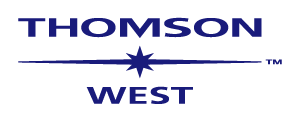
The American Law Institute (ALI) is a research and advocacy group of judges, lawyers, and legal scholars established in 1923 to promote the clarification and simplification of United States common law and its adaptation to changing social needs. Members of ALI include law professors, practicing attorneys, judges and other professionals in the legal industry. ALI writes documents known as "treatises", which are summaries of state common law. Many courts and legislatures look to ALI's treatises as authoritative reference material concerning many legal issues. However, some legal experts and the late Supreme Court Justice Antonin Scalia, along with some conservative commentators, have voiced concern about ALI rewriting the law.
Wexis is a humorous portmanteau used to refer to the alleged duopoly of publishing conglomerates that dominate the U.S. legal information services industry – namely, West Publishing and LexisNexis.

Case citation is a system used by legal professionals to identify past court case decisions, either in series of books called reporters or law reports, or in a neutral style that identifies a decision regardless of where it is reported. Case citations are formatted differently in different jurisdictions, but generally contain the same key information.

Westlaw is an online legal research service and proprietary database for lawyers and legal professionals available in over 60 countries. Information resources on Westlaw include more than 40,000 databases of case law, state and federal statutes, administrative codes, newspaper and magazine articles, public records, law journals, law reviews, treatises, legal forms and other information resources.
In American law, the American Law Reports are a resource used by American lawyers to find a variety of sources relating to specific legal rules, doctrines, or principles. It has been published since 1919, originally by Lawyers Cooperative Publishing, and currently by West and remains an important tool for legal research.

The Commonwealth Law Reports (CLR) are the authorised reports of decisions of the High Court of Australia. The Commonwealth Law Reports are published by the Lawbook Company, a division of Thomson Reuters. James Merralls AM QC was the editor of the Reports from 1969 until his death in 2016. The current editors are Christopher Horan KC and Paul Vout KC.
In American jurisprudence, the Restatements of the Law are a set of treatises on legal subjects that seek to inform judges and lawyers about general principles of common law. There are now four series of Restatements, all published by the American Law Institute, an organization of judges, legal academics, and practitioners founded in 1923.

Law reports or reporters are series of books that contain judicial opinions from a selection of case law decided by courts. When a particular judicial opinion is referenced, the law report series in which the opinion is printed will determine the case citation format.
The United States Patents Quarterly (U.S.P.Q.) is a United States legal reporter published by the Bloomberg Industry Group in Washington, D.C. The U.S.P.Q. covers intellectual property cases including patents, copyrights, trademarks, and trade secrets, from 1913 to the present. The publisher stopped the sequence of volume numbers and restarted with a second series, cited as U.S.P.Q. 2d (BNA), in 1987.

West is a business owned by Thomson Reuters that publishes legal, business, and regulatory information in print, and on electronic services such as Westlaw. Since the late 19th century, West has been one of the most prominent publishers of legal materials in the United States. Its headquarters is in Eagan, Minnesota; it also had an office in Rochester, New York, until it closed in 2019, and it had an office in Cleveland, Ohio, until it closed in 2010. Organizationally, West is part of the global legal division of Thomson Reuters.
West's National Reporter System (NRS) is a set of case law reporters for federal courts and appellate state courts in the United States. It started with the North Western Reporter in 1879 which has its origin in The Syllabi.

The Federal Reporter is a case law reporter in the United States that is published by West Publishing and a part of the National Reporter System. It begins with cases decided in 1880; pre-1880 cases were later retroactively compiled by West Publishing into a separate reporter, Federal Cases. The fourth and current Federal Reporter series publishes decisions of the United States courts of appeals and the United States Court of Federal Claims; prior series had varying scopes that covered decisions of other federal courts as well. Though the Federal Reporter is an unofficial reporter and West is a private company that does not have a legal monopoly over the court opinions it publishes, it has so dominated the industry in the United States that legal professionals, including judges, uniformly cite to the Federal Reporter for included decisions. Approximately 30 new volumes are published each year.

The Federal Appendix was a case law reporter published by West Publishing from 2001 to 2021. It collected judicial opinions of the United States courts of appeals that were not expressly selected or designated for publication. Such "unpublished" cases are ostensibly without value as precedent. However, the Supreme Court made a change to the Federal Rules of Appellate Procedure in 2006. Now, Rule 32.1 says that federal circuit courts are not allowed to prohibit the citation of unpublished opinions issued on or after January 1, 2007. Nevertheless, principles articulated in an opinion designated as "not for publication" are treated by the judges of that circuit as not necessarily binding on future panels hearing similar cases, nor on the district judges within the circuit.

The Federal Supplement is a case law reporter published by West Publishing in the United States that includes select opinions of the United States district courts since 1932, and is part of the National Reporter System. Although the Federal Supplement is an unofficial reporter and West is a private company that does not have a legal monopoly over the court opinions it publishes, it has so dominated the industry in the U.S. that legal professionals uniformly cite the Federal Supplement for included decisions. Approximately 40 new volumes are published per year.
Legal research is the process of identifying and retrieving information to support legal arguments and decisions. Finding relevant legal information can be challenging and may involve the use of electronic research tools as well as printed books and materials. However, many resources that are useful for legal research are fee-based, and many are not easily accessible.
Computer-assisted legal research (CALR) or computer-based legal research is a mode of legal research that uses databases of court opinions, statutes, court documents, and secondary material. Electronic databases make large bodies of case law easily available. Databases also have additional benefits, such as Boolean searches, evaluating case authority, organizing cases by topic, and providing links to cited material. Databases are available through paid subscription or for free.
Legal information retrieval is the science of information retrieval applied to legal text, including legislation, case law, and scholarly works. Accurate legal information retrieval is important to provide access to the law to laymen and legal professionals. Its importance has increased because of the vast and quickly increasing amount of legal documents available through electronic means. Legal information retrieval is a part of the growing field of legal informatics.

Federal Cases, circuit and district courts, 1789–1880 was a reporter of cases decided by the United States district and circuit courts between 1789 and 1880. It is part of the National Reporter System.
The United States Supreme Court Reports, Lawyers' Edition, or Lawyers' Edition, is an unofficial reporter of Supreme Court of the United States opinions. The Lawyers' Edition was established by the Lawyers Cooperative Publishing Company of Rochester, New York in 1882, and features coverage of Supreme Court decisions going back to 1790. The first Lawyers' Edition series corresponds to the official United States Reports from volume 1 to volume 351, whereas the second series contains cases starting from the official reporter volume 352. It is currently published by LexisNexis.









